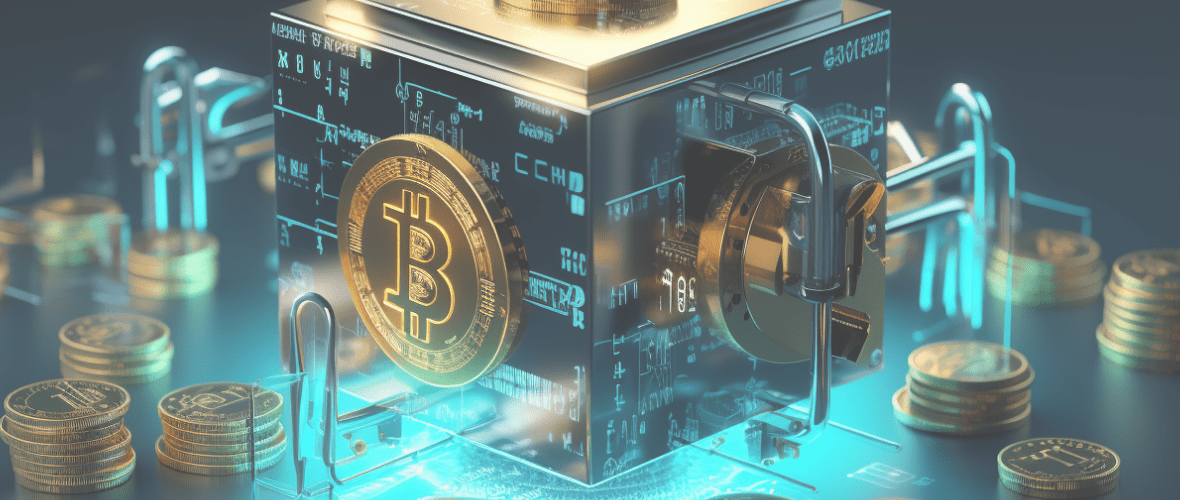Have you ever wondered why cryptocurrency platforms ask for your personal details before you can start trading or withdraw funds? This is where KYC (Know Your Customer) and AML (Anti-Money Laundering) compliance come into play. In the world of crypto, these are crucial practices that help keep your transactions safe and legal.
In this section, we’ll break down what KYC and AML really mean in the context of buying and selling cryptocurrencies. Why are they important? How do they affect your crypto transactions, and what does the global regulatory landscape look like for these measures? Let’s dive into the world of crypto compliance and understand why it’s a big deal for everyone involved in this digital financial revolution.
What is KYC and AML in crypto?
When you step into the world of cryptocurrencies, you’ll quickly encounter two key terms: KYC and AML. But what do they really mean for your crypto transactions?
KYC, or Know Your Customer is all about identity verification. Crypto platforms use KYC to confirm who you are, a bit like a digital ID check. It’s a safeguard against identity theft and fraud, ensuring that the person trading is really who they claim to be.
AML, or Anti-Money Laundering, on the other hand, steps in to stop the misuse of cryptocurrencies for illegal activities. It involves monitoring transactions and flagging anything that looks suspicious, like unusually large trades or erratic transfer patterns.
Cryptocurrency regulations aren’t the same everywhere. Some countries have strict rules, requiring every crypto platform to implement rigorous KYC and AML procedures. Others might be more relaxed, creating a diverse global landscape for crypto compliance.
For you, the user, this means that the level of detail and scrutiny in the KYC and AML process can vary depending on where you and the crypto platform are based. It’s part of the industry’s effort to fit into the wider financial world, balancing security with user accessibility.
In a nutshell, KYC and AML are critical to making crypto trading secure and compliant with global financial regulations. They may add a few steps to your crypto journey, but they’re there to protect everyone involved in this exciting market.
The KYC process in crypto purchases
KYC is essentially a security checkpoint. When you sign up on a crypto platform, they’ll ask you to go through this process. Think of it as a way to ensure that the platform’s services are not misused.
It starts with providing basic personal information – your name, address, date of birth, and often your occupation. This is the first step in establishing your identity.
The next phase is all about verifying that information. You’ll typically need to upload some form of government-issued ID – it could be a passport, driver’s licence, or national ID card.
Some platforms might also ask for proof of address. This could be a utility bill, bank statement, or any official document that shows your name and address.
In some cases, you might even be asked to take a selfie with your ID or participate in a video call – this helps ensure that the person creating the account is the same person in the ID documents.
The KYC process in crypto buying is a fundamental step in ensuring that the platform remains a safe place for trading. While it might seem like a bit of a hassle at first, it’s a one-time process that plays a crucial role in protecting the integrity of the crypto ecosystem.
AML regulations and crypto transactions
AML regulations are like a watchdog for crypto transactions. They’re there to ensure that cryptocurrencies aren’t used for illegal activities like money laundering or financing illicit operations.
For you, as a crypto user, this means certain transactions might be closely scrutinised. If a transaction seems out of the ordinary, it may be flagged for further review. This is done to ensure that all funds moving through the platform are clean and legal.
AML measures in practice:
- Transaction monitoring: Crypto exchanges actively monitor transactions. They look for unusual patterns that could indicate illicit activity, such as sudden large deposits or rapid, frequent transfers.
- User identity verification: This ties back to the KYC process. By verifying the identity of their users, crypto platforms can keep a check on who is trading and ensure they’re not on any international watchlists for financial crimes.
- Reporting large transactions: In many jurisdictions, crypto platforms are required to report large transactions to the relevant authorities. This threshold varies from country to country but is a standard AML practice.
- Maintaining detailed records: Exchanges keep detailed records of all transactions. In case of any investigation, these records can be used to trace the flow of funds and establish the legitimacy of transactions.
Understanding AML regulations in the context of crypto transactions is key to appreciating why certain checks and balances are in place. It’s all part of making the crypto world a safer place for legitimate traders and investors like you.
Benefits of KYC and AML compliance
KYC and AML compliance play a crucial role in enhancing the market’s security and legitimacy. Let’s explore how these processes are beneficial not just for platforms and regulators, but for you as a user as well.
Enhancing market security and legitimacy
KYC and AML compliance play a vital role in establishing a secure and reliable crypto market by verifying user identities and monitoring transactions. This adherence to stringent protocols not only builds trust within the market but also enhances its credibility globally. Crypto platforms that follow these measures show a commitment to integrity and transparency, aligning with international financial standards.
Preventing fraud and financial crimes
KYC and AML compliance are key in preventing fraud and illicit activities in the crypto market. By verifying user identities, platforms reduce risks like identity theft and financial fraud. Additionally, AML measures, through transaction monitoring and reporting suspicious activities, help prevent the misuse of cryptocurrencies for activities like money laundering and financing illegal operations.
In essence, KYC and AML compliance are more than just regulatory requirements; they are foundational elements that ensure the crypto market remains a safe and viable space for financial innovation and investment. As a user, understanding and appreciating the importance of these processes can lead to a more secure and confident experience in the world of cryptocurrency.
Privacy Concerns and Compliance
The necessity of sharing personal information for KYC and AML compliance can raise privacy concerns. You might wonder, “What happens to my data? Is it secure?”
It’s important to know that while these processes require collecting sensitive information, they are governed by strict privacy laws and regulations. The aim is to verify identities and prevent financial crimes, not to intrude on personal privacy.
How crypto platforms protect your data:
- Data encryption: Advanced encryption safeguards your data, making it unreadable without decryption keys.
- Secure storage: Your personal information is kept in secure, controlled databases with regular audits for data integrity.
- Limited access: Only authorised personnel, trained in data privacy, have access to your personal information.
- Regulatory compliance: Platforms adhere to data protection laws like GDPR, ensuring strict data handling and user rights.
Understanding these measures can alleviate concerns about privacy during the KYC and AML processes. Reputable crypto platforms like Kriptomat are committed to not only complying with regulatory requirements but also ensuring the highest standards of data security and privacy for their users.
Discover how easy it is to purchase cryptocurrencies on our platform with our straightforward, step-by-step guide. “How to Buy Cryptocurrencies on Kriptomat“.
Staying informed about compliance changes
The crypto sector is subject to frequent regulatory updates as governments and financial authorities adapt to the changing landscape. These changes could affect how you use crypto platforms, the information you need to provide, or the way your transactions are processed.
Regularly updating yourself on these changes ensures that you’re not caught off guard and can adapt your crypto activities accordingly.
Resources for staying informed:
- Crypto platform updates: Keep an eye on announcements from your crypto platforms for vital compliance updates.
- Financial news sources: Follow reputable outlets and crypto-focused websites for regulatory news.
- Online communities: Join discussions on platforms like Reddit and X (former Twitter) for insights on regulatory changes.
- Regulatory websites: Check official sites of financial regulators for detailed, authoritative information.
By actively seeking information and using these resources, you can stay well-informed about the compliance landscape in the crypto sector. This proactive approach not only helps in ensuring that you’re complying with current regulations but also aids in making more informed decisions in your crypto transactions.
The bottom line
Understanding KYC and AML compliance is vital for engaging in cryptocurrency. These regulations are key to ensuring secure and legitimate transactions in the evolving crypto market, making staying informed about them increasingly important.
For those looking to deepen their understanding of cryptocurrency and its regulatory environment, Kriptomat offers a wealth of educational resources. As a fully secure and compliant platform, Kriptomat not only adheres to the highest standards of regulatory requirements but also provides a user-friendly and safe trading environment.
We encourage you to explore these resources and consider signing up for a Kriptomat account. With Kriptomat, you can navigate the complexities of the crypto market with ease and confidence, backed by a platform that values your security and compliance with global financial regulations.
NOTE
This text is informative in nature and should not be considered an investment recommendation. It does not express the personal opinion of the author or service. Any investment or trading is risky, and past returns are not a guarantee of future returns. Risk only assets that you are willing to lose.




 IOS
IOS Android
Android